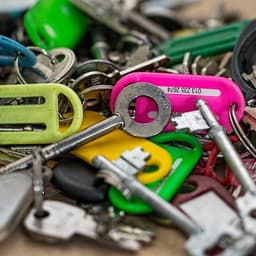Boating Checklist
Table of Contents
Introduction
Before Departing
Fuel
Personal Flotation Devices
Fire Extinguishers.
Tools
Battery
Distress Signals.
Forecast
Equipment
Anchors
Masts
Sails
Oars
Spare Batteries
Leaks
Grab rails
Non-skid surfaces
What to Pack
Food
Water
Communication
First Aid Kit
Lights
Sunscreen
Identification
Directions
Tips for Safety
Maintenance
Itinerary
Practice drills
Awareness
Download or Print this Boating Checklist
Get a printable version of this checklist in your preferred format: PDF, Word, Excel, or print directly from your browser.
Presented by:
Jefferey Rondman

Stats
Views
125
Views: 125
Uses
27
Uses: 27
Tasks
31
Tasks: 31
Details
Boating continues to become more popular every day, especially during the spring and summer months. Whether you are learning how to go boating for the sheer fun of it or to start a business, there are a few things to know. Learn how to use the safety jackets, and teach others to use them. Learn how to properly use everything on the boat you're manning, and always be prepared for anything that may come up. Always remember, safety is the most important thing, then fun; but you can do both at the same time!
Tips
Safety begins with the knowledge of how to use a number of different pieces of equipment on board a boat. Safety jackets and flotation devices are the most important piece of safety equipment for anyone on a boat. Depending on the type of boat, properly operating the sails and motors might be another skill to consider. Skill is learned, and what will help you become even safer out on the water.
Weather is always a huge factor when boating; if a storm is coming in, the waves can make it next to impossible to navigate. This would be where a lot of experience is important. Being smart enough to say you're going to go stay onshore is always a wise thing, and quite often, life-saving as well.
Deciding which body of water to go boating in is important. Always make sure that there is an experienced sailor on board. Have a plan as to where you are going, and when you'll arrive, and make sure people on shore know your plans and when to expect you. As your skills as a sailor increase, you can take on more responsibility.
Who it's for
This Boating Checklist is for anyone who wants a simple, practical way to get things done without missing steps.
- Avoid forgetting - keep all your Boating essentials in one place (external memory)
- Save time - start from a proven Boating structure instead of a blank page
- Stay on track - track progress, come back later, and keep momentum
- Coordinate with others - share the list and divide responsibilities
- Learn the process - follow the steps in a sensible order, even if it's your first time
How to use it
How to use this Boating Checklist
- Save Boating Checklist to your free Checklist account so your progress is saved and synced across devices.
- Customize it in the app: remove anything that does not apply, then add your own details for Boating (dates, sizes, addresses, notes).
- If others are involved, invite them to collaborate and divide responsibilities.
- Work through the list: check items off as you go, and set reminders for time-sensitive steps.
